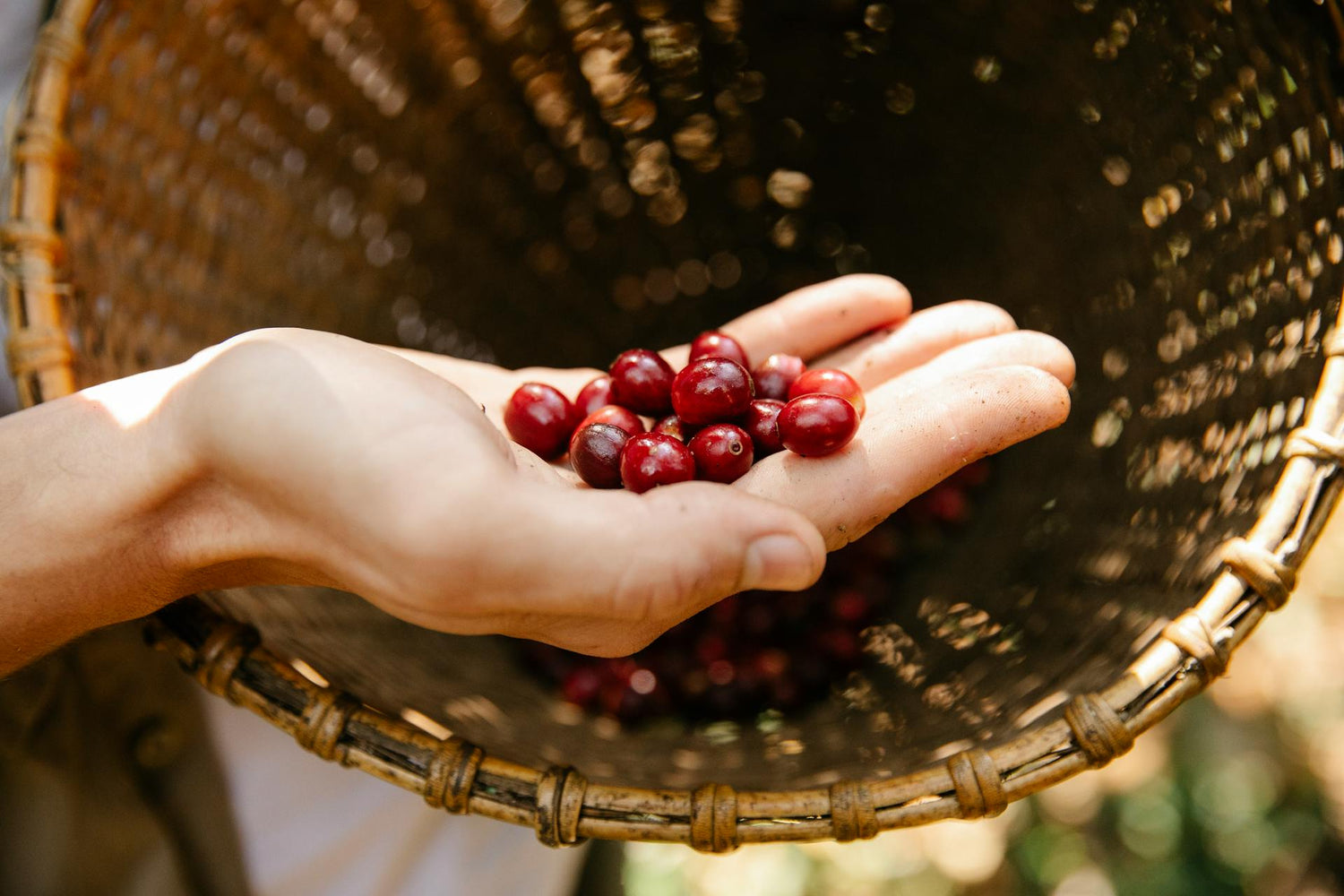10 Expert Tips for Selecting the Perfect Single Origin Coffee

Have you ever taken that first sip of coffee in the morning and noticed flavors you couldn't quite identify? One of our first experiences with single origin coffee many years ago was like that—a revelation of rich, distinct notes that we had never encountered in blended coffees. We believe in the power of single origin beans to transform your coffee experience by sharing stories of the craft and the makers behind them. Here's how to choose the perfect beans to elevate your daily brew.
1. Understand Single Origin Coffee
What is Single Origin Coffee?
Single origin coffee comes from one specific region, farm, or even a single lot within a farm, unlike blends which can mix beans from different locations. This specificity allows for unique flavors that reflect the terroir, or the natural environment where the coffee is grown. When you drink single origin coffee, you're essentially tasting the "story" of that farmer and particular place —its soil, climate, and farming practices all contribute to the final flavor profile. When you enjoy blends, you taste the story of the roaster, and how they believe they can bring out different more unique flavors to their and their customers preference.
Why Choose Single Origin?
Single origin coffees offer distinct flavors and characteristics, making each cup a unique experience. Here’s why you should consider exploring more single origins:
- Unique Flavors: Each region imparts its own unique flavor notes to the coffee. For example, Ethiopian coffees are often praised for their fruity and floral notes, while Brazilian coffees can be known for their nutty and chocolatey flavors.
- Transparency: With single origin coffee, you know exactly where your coffee is coming from. This transparency is not just about flavor but also about supporting specific farming communities and practices.
- Quality Control: Single origin coffees vary greatly on quality. This can be from a number of factors such as farmer practices, shipping and transport, and even roast profiles. The same green bean from one farm can have different factors that may result in different tastes, either from the roasters preference and the brewers preparation. Look for single origin coffees that explain the story of the producer and the care that went into them.
- Traceability: Being able to trace your coffee back to its source can give you peace of mind about the ethical and environmental practices involved in its production. There are 100s of people that go into the supply chain process before you taste the coffee. The more you know about the process, the more you'll likely savor that cup.
For those passionate about coffee, single origin beans offer a way to explore and appreciate the diversity of coffee from around the world. It’s an adventure in every cup, connecting you directly to the farmers and regions that produce your coffee which many know very little about.
2. Know Your Regions
Coffee-Growing Regions
Understanding where your coffee comes from can significantly influence your choice. Each coffee-growing region has its own unique climate, soil composition, and agricultural practices, all of which contribute to the flavor profile of the coffee. Here's a closer look at some major regions and their typical profiles:
- Africa: Known for vibrant, fruity, and floral coffees. This region is often referred to as the birthplace of coffee. Ethiopian coffees, for example, are famous for their complex, floral, and fruity notes, often with hints of blueberry or jasmine. Kenyan coffees are known for their bright acidity and citrus notes.
- Latin America: Expect balanced flavors with hints of chocolate and nuts. Colombian coffees are renowned for their smooth, well-balanced flavors with a medium body and bright acidity. Brazilian coffees, on the other hand, often feature nutty, chocolatey flavors with a lower acidity.
- Asia: Coffees from Indonesia and Vietnam often have earthy, spicy, and bold flavors. Indonesian coffees, such as those from Sumatra, are known for their full body, low acidity, and deep, earthy flavors. Vietnamese coffees are known for their robusta beans, which provide a stronger, more bolder flavors compared to arabica beans from other regions. However Vietnam has been making strides in specialty coffee, and we are proud to be the one of the only roasters in Japan offering specialty grade 100% Arabica coffee from Zanya farm in Da Lat, with notes of tropical fruit and pineapple, achieving a score of 86+ pts by the SCA. As well as the champion roasters from Soul Coffee offering rare lot Fine-Robusta coffee (part of our Exclusive Origins XO Limited series) that have notes of sake and chrysanthemum.
Regional Highlights
For instance, Ethiopian Yirgacheffe beans are famous for their delicate floral and citrus notes, making them a favorite among coffee connoisseurs. The high altitude and unique heirloom varieties in Yirgacheffe contribute to its distinct flavor profile.
Another example is the Sumatra Mandheling coffee from Indonesia, known for its full body, rich, earthy flavors, and low acidity. The traditional wet-hulling process used in Sumatra enhances these unique characteristics. You can read more about this process in our previous post here.
By understanding the flavor profiles associated with different regions, you can better match your personal taste preferences with the right single origin coffee. Whether you prefer bright, fruity notes or bold, earthy flavors, knowing your regions is key to selecting the perfect beans.
3. Check the Roast Date
Freshness Matters
Freshly roasted coffee is crucial for the best flavor. Coffee reaches its peak flavor a few days after roasting and starts to lose its freshness after a few weeks. Always check the roast date on the bag. If you can't find the roast date, that is not a good sign and very likely it is old and has been sitting for longer than what can be acceptable in specialty coffee.
How to Read Roast Dates
Look for the roast date rather than the expiration date. Ideally, consume your coffee within 2-4 weeks of roasting for optimal flavor. It has been proven that coffee beans require time to de-gas after roasting. You can see more on why here. If you drink coffee that was roasted just prior to brewing it, in your mind it may feel like its "fresher" but in reality, the best time to consume it is 5-10 days after roast. At Virtuoso, we roast twice weekly, and never sell coffee any coffee that is 2 weeks past roast date, unless it is part of our XO Limited Collection.
4. Explore Processing Methods
Natural vs. Washed
Processing methods significantly affect the taste of coffee. Natural (dry) processing involves drying the beans with the fruit still attached, resulting in a sweet and fruity flavor. Washed (wet) processing removes the fruit before drying, producing a cleaner, brighter taste. Honey processing, a hybrid method, retains some fruit mucilage, offering a balanced profile.
Flavor Impact
For example, a naturally processed Ethiopian coffee may burst with berry flavors, while a washed Colombian coffee will likely taste cleaner and brighter.
5. Consider Altitude
High vs. Low Altitude
The altitude at which coffee is grown affects its flavor profile. Higher altitudes (above 1,200 meters) generally produce denser beans with more complex flavors and acidity. Lower altitudes tend to yield beans with a more straightforward, milder taste.
Altitude and Acidity
Higher altitude coffees often have higher acidity, which can translate into vibrant and lively flavors. This acidity can be appealing if you prefer a bright and zesty cup.
6. Look for Certifications
Quality Indicators
Certifications like Fair Trade, Organic, and Rainforest Alliance are markers of quality and ethical practices. These certifications ensure that the coffee is produced sustainably and that the farmers are treated fairly.
Why Certifications Matter
Choosing certified coffees supports environmentally friendly practices and fair labor conditions. It also assures you of the coffee's quality. At Virtuoso, sustainability and traceability are a given, and our direct relations with farmers is a testament to that.
7. Taste Test and Experiment
Sample Before You Commit
Before buying a large quantity, try different single origin coffees in small amounts. Many specialty coffee shops and roasters offer sample sizes or tasting flights. For example, we have a range of tasting sets that offer 3x 100g of blends or origins, or 2x of a mix between the two.
Experiment with Brewing Methods
Different brewing methods can highlight various aspects of a coffee's flavor. For instance, a pour-over method can bring out the delicate notes in a coffee, while a French press might accentuate the bolder flavors. See our brew guides for in-depth support.
8. Pay Attention to Tasting Notes
Deciphering Tasting Notes
Tasting notes on coffee bags or websites provide insight into the expected flavors. They can include descriptors like "chocolate," "berry," "floral," and "spicy." Use these notes as a guide but trust your own palate.
Trust Your Palate
Everyone's taste preferences are different. What matters most is finding a coffee that you enjoy. Don't be afraid to trust your taste buds and explore.
9. Seek Expert Advice
Ask Your Local Barista
Baristas and roasters are often passionate about coffee and happy to share their knowledge. Don't hesitate to ask for recommendations based on your taste preferences. You can even message us directly using LINE, WhatsApp, or Facebook/Instagram.
Attend a Workshop
Attending tastings or workshops at specialty coffee shops can deepen your understanding and appreciation of single origin coffees. It's also a great way to meet like-minded coffee enthusiasts. You'd be surprised what you might learn, because, well, you dont know what you dont know! We have many events planned for 2024 and early 2025, so please stay tuned!
10. Embrace the Journey
Enjoy the Process
Choosing the perfect single origin coffee is a journey. Enjoy exploring different beans and regions, and take pleasure in the diverse flavors and stories behind each cup.
Share Your Discoveries
Share your favorite finds and experiences with us on social media! Your journey might inspire others to explore the world of single origin coffee too, and we love to hear your feedback.
Selecting the right single origin coffee bean involves understanding various factors, from regions and processing methods to roast dates and certifications. By paying attention to these details, you can find the perfect beans to suit your taste and enhance your coffee experience. Ready to embark on your coffee journey? Explore our selection of coffee today!





